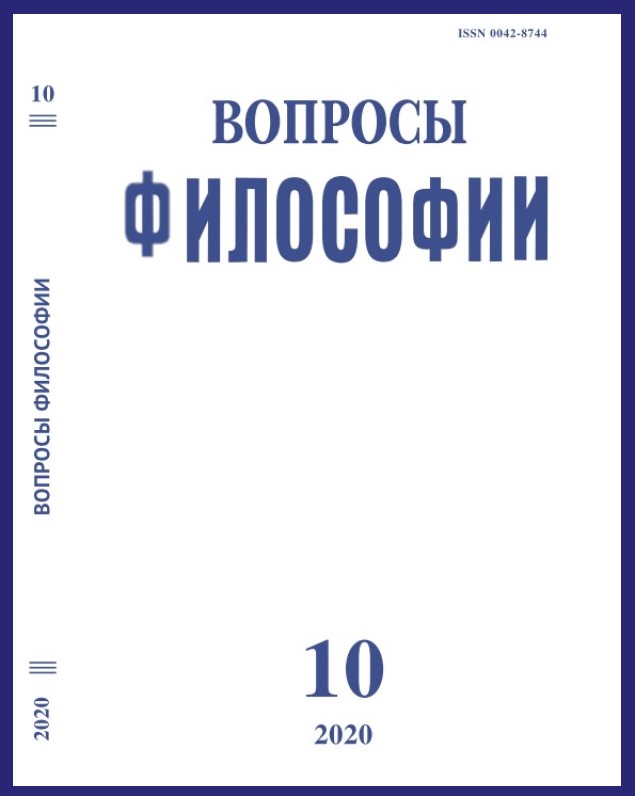An Engaged Act as a Condition of a (Philosophical) Community
DOI:
https://doi.org/10.21146/0042-8744-2020-10-104-109Keywords:
act, community, individual, philosophy, engaged act, social act, institutional actAbstract
The text presented is the beginning of a project of a group based in Belgrade at the Institute of Philosophy and Social Theory for Engagement Studies. We are interested in how the French word engagement behaves in Russian. A preliminary definition of our position and the main hypothesis consists of several provisions: first, we are interested in the acts or actions, as a result of which something happens, and not the facts, objects, consequences or results of these acts. It is important for us to know how a society is built or how individuals come together and hold together. We believe that there are acts, or groups of acts that work or do not work. Second, we are trying to highlight the acts that result in institutions, and not just groups, societies or communities. We believe that without the participation of the so-called “biased acts”, whose definition we want to give in our text, there are no institutions as such or strong and stable institutions. Engaged acts give institutions legal status and strengthen them. And the third, in the case of philosophical communities, we are faced with the problematic nature of biased acts and greater operability of institutional acts, which determines some specifics of philosophical communities.

